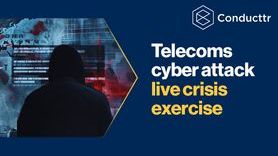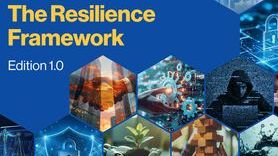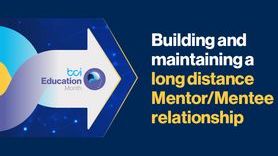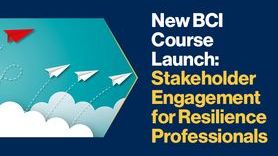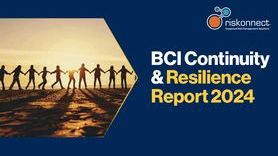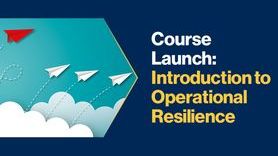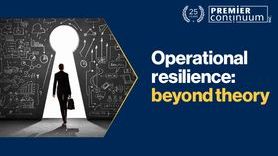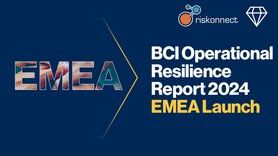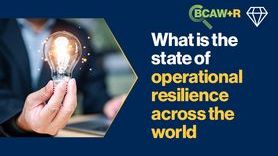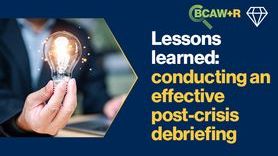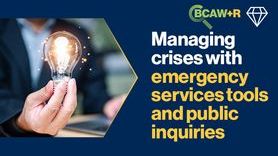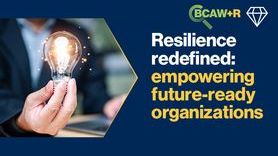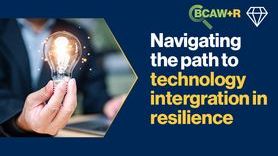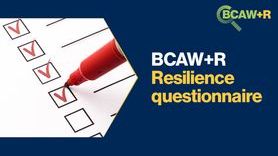Diverse Perspectives: Regional and industry approaches to business continuity training

Week 2 of Education Month 2024 featured a series of webinars focusing on regional and industrial approaches to business continuity management training. The series aimed to boost practitioner knowledge of training and exercising, give professionals an opportunity to ask topic-specific questions, and share tips and insights they could implement in their organizations.
Session overview
Enhancing Cyber Security through Exercising.
In this thought-provoking presentation Federica Maria Rita Livelli and Charlie Maclean-Bristol discussed the scope of cyber training and ran through an example of a successful ransomware tabletop exercise. Elements such as testing call-out procedures, examining insurance, and focusing on a media strategy were recommended among others, as well as a specific focus on how to deal with the cloud, and choosing data breach as a scenario.
Top tips from this session included viewing training and exercising as ‘an investment in your organization’s future’ and suggesting practitioners refrain from explaining how a cyber-attack occurred during training sessions.
Attendees discussed the outcomes of cyber exercises and shared opinions on paying ransom demands. The answer? Exercise it and find out.
Women In Resilience: Training and exercising – How do you do it?
The second session of the week was held by the BCI Women in Resilience (WiR) Special Interest Group. It focused on a series of LinkedIn surveys that quizzed training and exercising preferences. One survey highlighted a preference for in-person training over remote training and sparked a lively discussion about its pros and cons, such as how virtual training may be more realistic as more people than ever now employ remote working practices.
Tops tips provided by attendees suggested linking business continuity training to personal development reviews and creating a range of videos to improve staff training uptake. The chat was busy during this webinar so when time was up the attendees moved across to the LinkedIn page.
Business continuity training and exercising in North Africa
This regional webinar examined business continuity and resilience training in North Africa, with a particular focus on regulations. Ramy Mohammed, leader of the Northern Africa Chapter, began with an outline of North African experiences, the regional demand for skills, and need to tie training to regional specific threats.
In depth presentations from Hitchim Faik, Johnatan Nagor, and Raouf Riahi followed, focusing on regulations and training in their respective regions. Attendees discussed avoiding tick box exercises and the legality of paying ransomware demands, which gave rise to constructive discussions and training tips.
Building resilience: BC training & exercising in Southern Africa
Thembumenzi Kunene discussed complex challenges faced by Southern Africa, such as the energy crisis and its resulting implications on operations, and how practitioners can train and exercise to improve the region’s resilience.
Thembumenzi’s in-depth information on training scenarios, and multiple suggestions on how to keep employees engaged, provided many tips for attendees to take back to their organizations, such as shifting to innovative case studies, role play, customisable learning paths that impart relevant training, and utilising virtual reality simulations to create immersive situations.
Regional approaches to business continuity training and exercising
Russ Parramore concluded the week with a presentation based on his training and exercising experiences in the north of England. His interesting talk demonstrated how large exercises are run effectively and gave real-life examples of running multi-agency training scenarios.
Attendees offered their experiences and discussed their ‘game changing’ exercise tips. Suggestions included cross-functional collaborations, small exercises for single departments, using images and music in presentations, testing designated remote facilities, and telling participants that exercises are run to strengthen plans - they are not pass or fail events. Russ rounded off the event with tips on how to use AI in exercising.
Join us for the final of week of education month where we’ll examine the role of mentoring in professional development.



